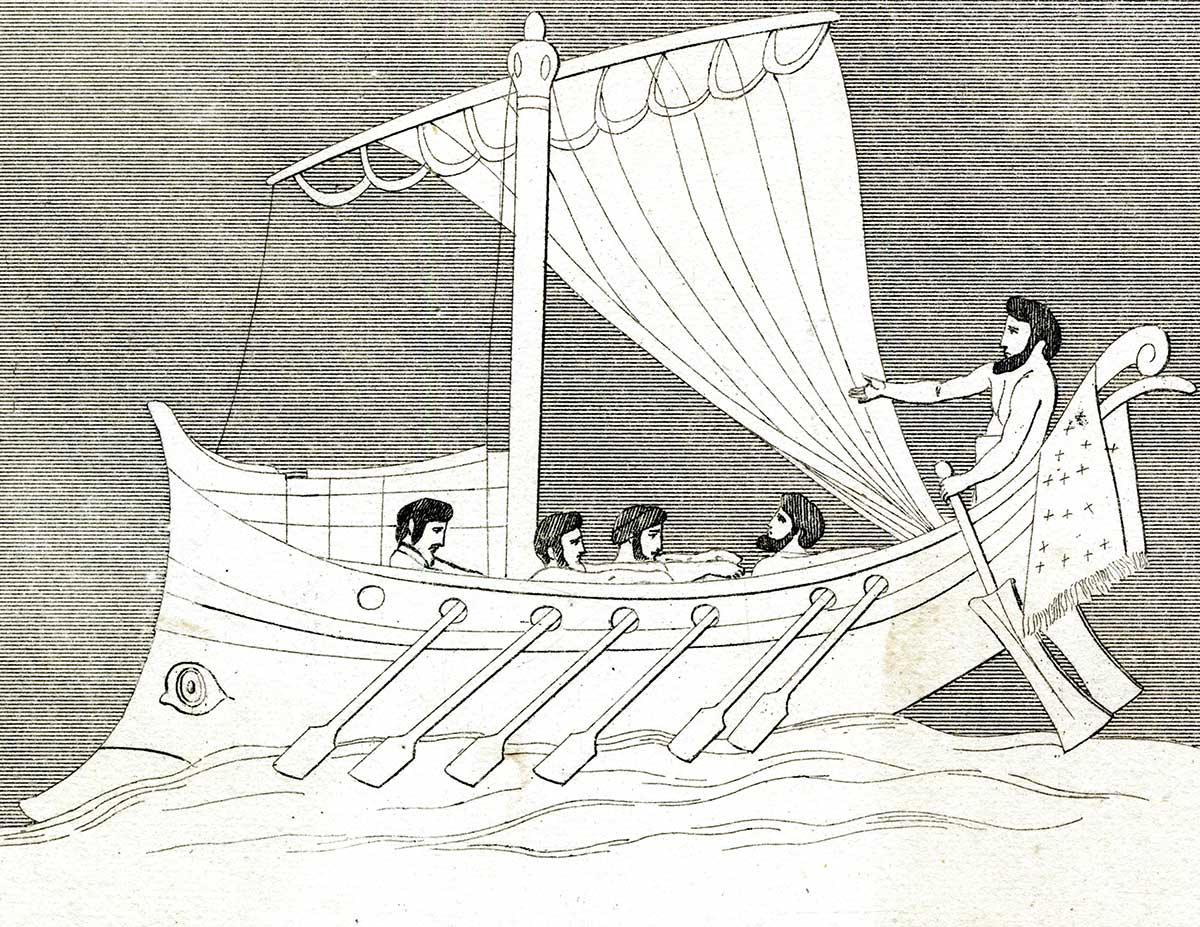Hacking God
The Biggest Identity Theft Ever
Last year about this time, I was a victim of identity theft. Someone got hold of my Social Security number and other vital information through the “dark web,” and over the course of a day or two purchased two luxury automobiles at my expense.
Fortunately, a banker in Ohio suspected the worst and contacted me. At first, I wasn’t sure he was a banker at all, and I wondered if he was someone phishing for information himself. But a quick check of my credit report confirmed the unwelcome truth. I was in hock for about $170,000 of charges in my name. I set to work immediately, and because this happens a lot in our super-connected world, policies are in place that made it possible for me to have those charges reversed over the course of a week. Unfortunately, the car dealerships had to reclassify the sales as thefts, and as far as I know, the criminal who stole my identity, and those cars, is still on the lam.
Identity theft has been around from the beginning, but in the brave new world made possible by technology, our illusions have grown increasingly credible. Recently the pop musician Taylor Swift was the victim of a “deep fake” in which her likeness was used in a pornographic video. A deep fake—if you haven’t heard—is a computer-generated simulation of a real person. Taylor Swift wasn’t in the video, but a naïve viewer wouldn’t know that.
Imagine what the Ministry of Truth could have done with technology like this. Speaking of dystopian literature, consider the dystopian turn Western culture has taken with respect to “identity politics.” Technology is employed here as well. People are scouring their DNA for evidence that they belong to a historically aggrieved group, such now conferring status and permitting access to set-asides and preferential treatment. Or consider the surreal world of so-called gender-affirming care. Now, with a few snips and some hormones, men can pass as women while retaining the physical advantages of men. Not only do some of them win prizes that were set aside for women, but they also enjoy the advantage of belonging to another supposedly disfavored group, in this case something called “trans.”
If this comes as a surprise, it shouldn’t. Socrates in The Republic observed, “What is honored in a country is practiced there.” And today we not only honor aggrieved groups, but we also favor anyone attempting to “transcend” the limits of biology.
You probably noticed an inconsistency here. In the first case, something real—the composition of one’s DNA—is revealed with technology, but in the second, the presence of a Y chromosome is covered up with technology. Which goes to show reality isn’t always the point. Since that’s so, what is the point?
The Ship of Theseus
The “Ship of Theseus” thought experiment might be helpful for homing in on what’s going on. Here’s a brief summary: There was once a ship named “The Ship of Theseus,” and over time it underwent repair, one part after another being replaced until the entire ship was made up of new parts—new rudder, new sails, new masts, even new planking and a new hull. The question is, after everything has been replaced, is it the same ship, or not?
Most people would say, “Of course!” although many would struggle to explain why. Some might say that it boils down to the name—the name remains even though the ship is different. But if that’s all there is to it, why not play with the names?
There’s one obvious problem with that, for a time anyway, and that’s confusion. Two or more names might jostle with each other, and the identity of the ship wouldn’t be clear. Of course, if you had the power, you could ruthlessly cancel people who didn’t use the new name, until everyone was either reeducated or eliminated. Speaking of names, let’s call this the “What’s in a name?” view of identity—or we can just call it “nominalism.” In essence, nominalists don’t believe there is anything essential behind a name. And when it comes to identity theft, it isn’t clear how a nominalist approach could help clear things up.
To many healthy-minded people, nominalism doesn’t seem quite right. So perhaps it’s the design of the ship that matters? In that case, new parts replacing old ones doesn’t alter the design; that remains essentially unchanged. This gives us a basis for a name. The name helps us identify something essential. Let’s call this the “Name the purpose” school of thought, or we can just call it “Aristotelianism.”
C. R. Wiley is a pastor living in the Pacific Northwest. He is the author of The Household and the War for the Cosmos and In the House of Tom Bombadil. He is also a co-host of The Theology Pugcast. He is a senior editor of Touchstone.
subscription options
Order
Print/Online Subscription

Get six issues (one year) of Touchstone PLUS full online access including pdf downloads for only $39.95. That's only $3.34 per month!
Order
Online Only
Subscription

Get a one-year full-access subscription to the Touchstone online archives for only $19.95. That's only $1.66 per month!
bulk subscriptions
Order Touchstone subscriptions in bulk and save $10 per sub! Each subscription includes 6 issues of Touchstone plus full online access to touchstonemag.com—including archives, videos, and pdf downloads of recent issues for only $29.95 each! Great for churches or study groups.
Transactions will be processed on a secure server.
more on culture from the online archives

33.1—January/February 2020
Do You Know Your Child’s Doctor?
The Politicization of Pediatrics in America by Alexander F. C. Webster
more from the online archives
calling all readers
Please Donate
"There are magazines worth reading but few worth saving . . . Touchstone is just such a magazine."
—Alice von Hildebrand
"Here we do not concede one square millimeter of territory to falsehood, folly, contemporary sentimentality, or fashion. We speak the truth, and let God be our judge. . . . Touchstone is the one committedly Christian conservative journal."
—Anthony Esolen, Touchstone senior editor












